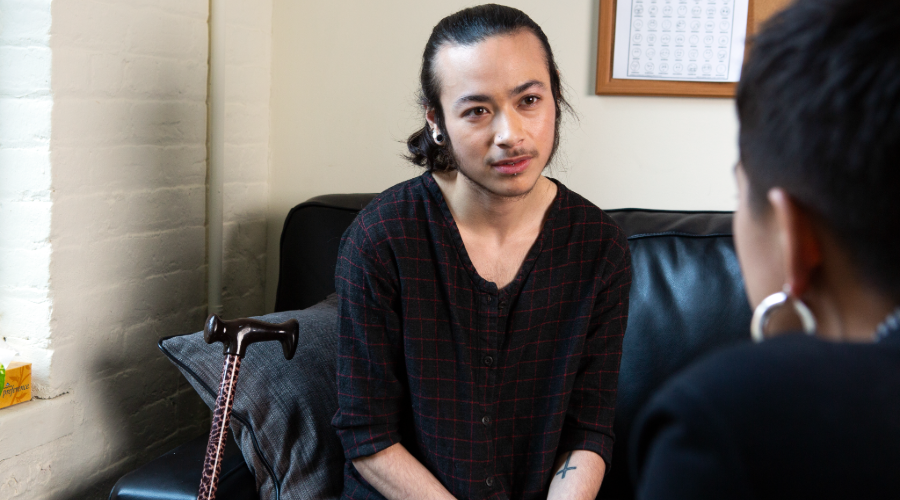Stigma Training Series
Provide’s Stigma Training Series brings our effective best-practices and resources to professionals and organizations nationwide.
Each 2-hour interactive training examines the challenges clients with one or more marginalized identities may face when seeking care for an unintended pregnancy, including provider bias, environmental barriers, and lack of training. Each session will empower you with information and skills to reduce barriers to care, eliminate stigma, and improve support for people experiencing unintended pregnancy and/or seeking abortion.
Register Today!
Stigma Trainings

Illuminating Hidden Barriers
In this 30-minute introductory overview, participants learn about how people with one or more marginalized identities can be impacted by provider bias when seeking care for an unintended pregnancy.

Supporting Black Clients Seeking Pregnancy Referrals
Participants will consider the challenges Black clients face when seeking care for an unintended pregnancy. By the end of this training, participants will be able to:
- Identify at least one way anti-Black racism shows up in healthcare
- Describe at least one factor that may contribute to increased incidence of unintended pregnancy among Black individuals
- Describe at least one factor that may impact a Black individual’s ability to access reproductive healthcare
- Explain at least two best practices in supporting Black individuals in accessing reproductive healthcare
- State at least one intended practice change in referring Black individuals to abortion services

Supporting LGBTQ+ Clients Seeking Pregnancy Referrals
Participants will consider the challenges lesbian, gay, bisexual, transgender, and queer (LGBTQ+) clients face when seeking care for an unintended pregnancy. By the end of this training, participants will be able to:
- Describe at least one factor that may contribute to increased incidence of unintended pregnancy for LGBTQ+ individuals
- Describe at least one factor that may impact a LGBTQ+ individual’s ability to access reproductive healthcare
- Explain at least two best practices in supporting LGBTQ+ individuals in accessing reproductive healthcare
- State at least one intended practice change in referring LGBTQ+ individuals to abortion services

Supporting Trans and Nonbinary Clients Seeking Pregnancy Referrals
Participants will consider the challenges transgender and non-binary people face when seeking care for an unintended pregnancy. By the end of this training, participants will be able to:
- Describe at least one factor that may contribute to increased incidence of unintended pregnancy among transgender and non-binary individuals.
- Describe at least one factor that may impact a transgender or non-binary person’s ability to access reproductive healthcare.
- Explain at least two best practices in supporting transgender and non-binary individuals in accessing reproductive healthcare.
- State at least one intended practice change in referring transgender and non-binary individuals to abortion services.

Fat-Positive Pregnancy Referrals
Participants will consider the challenges fat clients face when seeking care for an unintended pregnancy. By the end of this training, participants will be able to:
- Define anti-fat bias and identify at least one way anti-fat bias shows up in the world
- Describe at least one factor that may impact a fat individual’s ability to access reproductive healthcare
- Explain at least two best practices in supporting fat individuals in accessing reproductive healthcare
- State at least one intended practice change in referring fat individuals to abortion services

Supporting Young Clients Seeking Pregnancy Referrals
Participants will consider the challenges young clients face when seeking care for an unintended pregnancy. By the end of this training, participants will be able to:
- Describe at least one factor that may impact a young person’s ability to access reproductive healthcare
- Explain at least two best practices in supporting young individuals in accessing reproductive healthcare
- State at least one intended practice change in referring young individuals to abortion services
- Identify judicial bypass, abortion funds, and Provide’s Referral Tool as tools that can support their work with young people seeking abortion
Provide’s training can be customized to meet the needs of your staff and community. Contact us today to request free training or other technical assistance for your workplace.